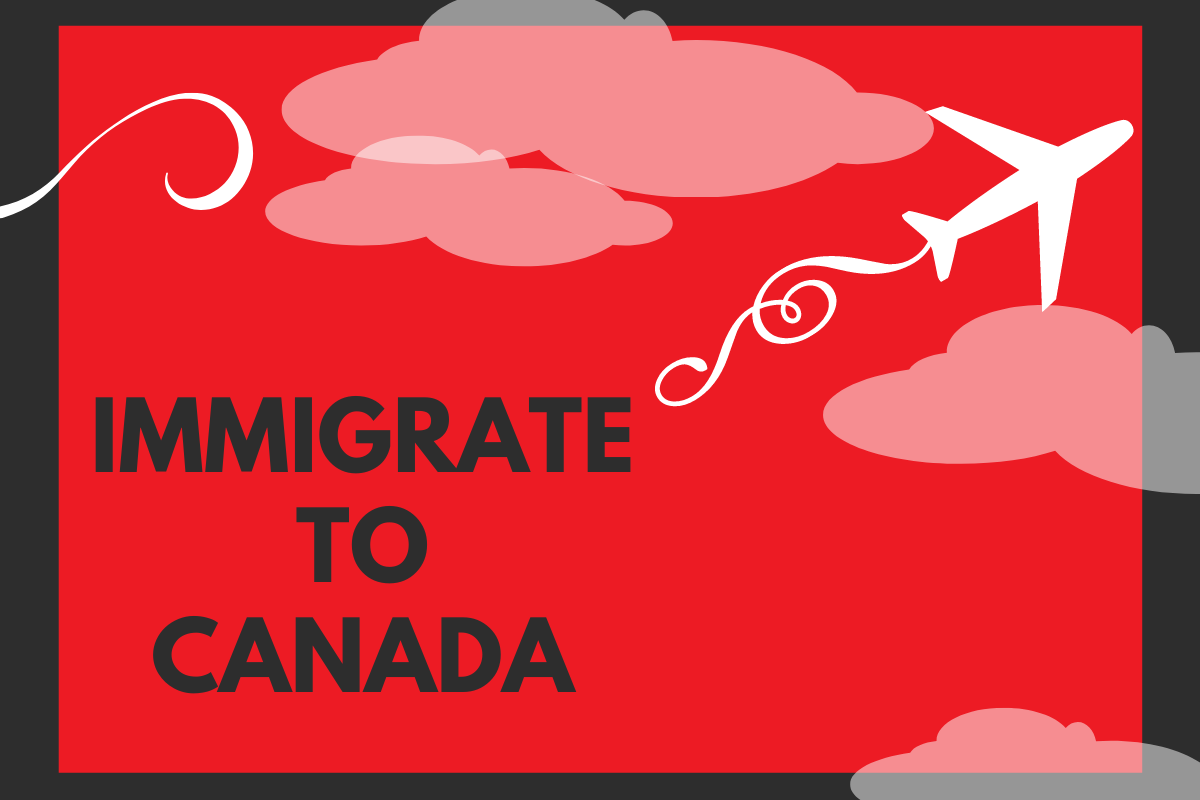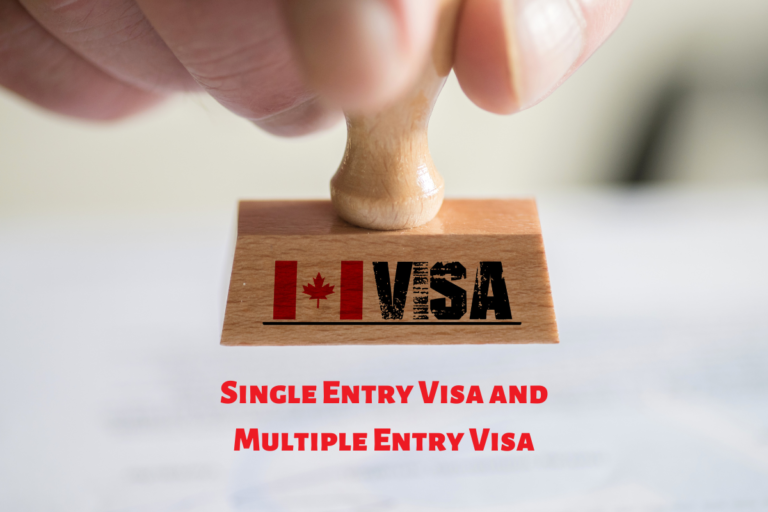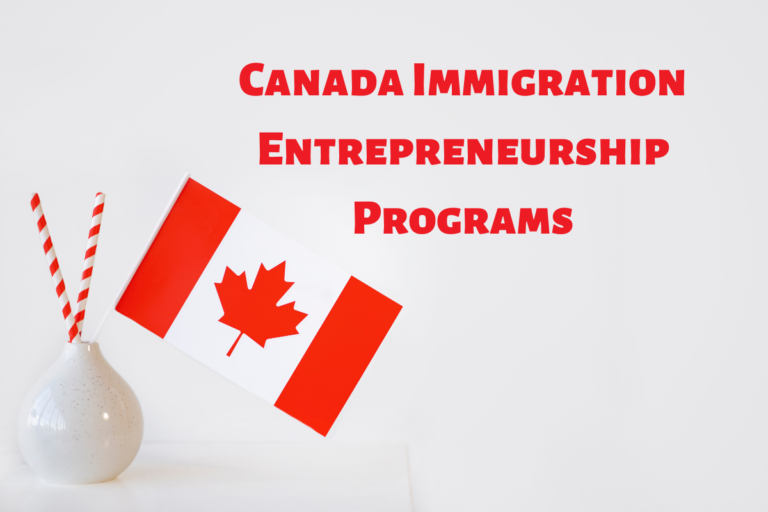How you can immigrate to Canada?
There are several ways to immigrate to Canada, depending on your individual circumstances and qualifications. Some of the most common ways to immigrate to Canada include:
- Express Entry: This is a points-based system that manages applications for permanent residence under certain economic immigration programs, including the Federal Skilled Worker Program, Federal Skilled Trades Program, and Canadian Experience Class.
- Provincial Nominee Program (PNP): Each province and territory in Canada has its own PNP, which allows them to nominate a certain number of individuals for permanent residence each year based on their specific needs and requirements.
- Family sponsorship: Canadian citizens and permanent residents can sponsor certain family members to come to Canada as permanent residents.
- Study permit: International students who have been accepted to a Canadian educational institution can apply for a study permit which will allow them to study in Canada.
- Work permit: International workers who have a job offer from a Canadian employer can apply for a work permit which will allow them to work in Canada.
- Start-up Visa: This program targets immigrant entrepreneurs with the skills and potential to build businesses in Canada that can create jobs and drive economic growth.
It is important to note that the eligibility criteria, application process, and requirements for each immigration program can vary, and it is best to check the Government website for the most up-to-date information. Additionally, it is highly recommended to consult with a immigration lawyer or consultant for personalized help and advice.
Express Entry
Express Entry is an online system that manages applications for permanent residence under certain economic immigration programs in Canada, including the Federal Skilled Worker Program (FSWP), Federal Skilled Trades Program (FSTP), and Canadian Experience Class (CEC).
To be eligible to enter the Express Entry pool, candidates must first meet the criteria of at least one of the programs. Once the candidate has met the requirements, they can create an online Express Entry profile, where they will provide information about their education, work experience, language proficiency, and other factors.
Based on the information provided, candidates are then ranked against other candidates in the pool using a points-based system called the Comprehensive Ranking System (CRS). The highest-ranking candidates are issued an Invitation to Apply (ITA) for permanent residence.
The Express Entry process is fast and efficient, with most applications being processed within six months. Candidates who receive an ITA are given 90 days to submit their application for permanent residence, and after that it can take from several months to a year to get their permanent residence.
It’s important to note that the eligibility criteria and the process may change over time, and it is recommended to check the Government website for the most up-to-date information and consult with a immigration lawyer or consultant for personalized help and advice.
Provincial Nominee Program
The Provincial Nominee Program (PNP) is a way for provinces and territories in Canada to nominate individuals for permanent residence based on their specific needs and requirements. Each province and territory has its own PNP with different streams and criteria for nomination.
Through the PNP, individuals can immigrate to Canada by obtaining a provincial nomination certificate, which can then be used to apply for permanent residence. The nomination certificate is an important factor that is considered by the federal government when processing the permanent residence application, and it can help increase the chances of getting approved.
Some of the most common streams for provincial nomination include:
- Skilled worker streams, for individuals with in-demand skills and work experience in a specific province or territory
- Business or entrepreneur streams, for individuals who want to start or invest in a business in a specific province or territory
- International graduate streams, for recent graduates of a Canadian post-secondary institution
- Family connections streams, for individuals with close family members living in a specific province or territory.
The PNP process can vary by province and territory, and the criteria and requirements can change over time. It is recommended to check the Government website of the province or territory you are interested in and consult with a immigration lawyer or consultant for personalized help and advice.
Family sponsorship
Family sponsorship is a way for Canadian citizens and permanent residents to sponsor certain family members to come to Canada as permanent residents. The family members that can be sponsored include:
- Spouses, common-law partners, and conjugal partners
- Dependent children, including adopted children
- Parents and grandparents
- Other relatives in certain limited circumstances
The sponsor, who must be living in Canada, is responsible for providing financial support for the sponsored family member(s) and ensuring that they do not need to rely on social assistance. They also must sign an undertaking, promising to support the sponsored family member(s) for a period of three to ten years, depending on the relationship.
To sponsor a family member, the sponsor must first be deemed eligible to sponsor by meeting certain requirements such as being financially stable and not having a criminal record. The sponsor must then submit an application for sponsorship, along with the application for permanent residence of the family member(s) being sponsored.
The processing time for family sponsorship applications can vary and it can take several months to more than a year to get the permanent residence. It is important to note that the eligibility criteria, application process, and requirements for each immigration program can vary, and it is best to check the Government website for the most up-to-date information. Additionally, it is highly recommended to consult with a immigration lawyer or consultant for personalized help and advice.
Study permit
A study permit is a document issued by the Canadian government that allows international students to study in Canada. To be eligible for a study permit, the student must have been accepted to a designated learning institution (DLI), which is a school that is approved by the Canadian government to host international students.
The student must also demonstrate that they have enough money to pay for their tuition and living expenses, and that they have no criminal record or other reasons that would make them inadmissible to Canada. Additionally, they must provide a valid passport and any other required documents.
The application process for a study permit typically involves filling out an online application form, paying the fee, and submitting the required documents. The processing time for study permit applications can vary and it can take several weeks to several months to get the study permit.
It is important to note that a study permit is not a guarantee of entry to Canada. The student may be asked to go through additional security or health checks at the border or airport, and the officer may refuse entry if the student does not meet the requirements.
It is important to note that the eligibility criteria, application process, and requirements for study permit may change over time, and it is best to check the Government website for the most up-to-date information. Additionally, it is highly recommended to consult with a immigration lawyer or consultant for personalized help and advice.
Work permit
A work permit is a document issued by the Canadian government that allows foreign workers to work in Canada on a temporary basis. To be eligible for a work permit, the worker must have a job offer from a Canadian employer and the employer must have obtained a positive labor market impact assessment (LMIA) from Employment and Social Development Canada (ESDC), unless the worker is exempt from the LMIA requirement.
The worker must also demonstrate that they have enough money to support themselves and their family during their stay in Canada, and that they have no criminal record or other reasons that would make them inadmissible to Canada. Additionally, they must provide a valid passport and any other required documents.
The application process for a work permit typically involves filling out an online application form, paying the fee, and submitting the required documents. The processing time for work permit applications can vary and it can take several weeks to several months to get the work permit.
It is important to note that a work permit is not a guarantee of entry to Canada. The worker may be asked to go through additional security or health checks at the border or airport, and the officer may refuse entry if the worker does not meet the requirements.
It is also important to note that a work permit is temporary and it will expire on the date specified on the permit, usually the expiry date of the LMIA. And if the worker wants to stay longer or become a permanent resident they would need to apply for other programs.
It is important to note that the eligibility criteria, application process, and requirements for work permit may change over time, and it is best to check the Government website for the most up-to-date information. Additionally, it is highly recommended to consult with a immigration lawyer or consultant for personalized help and advice.
Start-up Visa
The Start-up Visa Program is a Canadian immigration program that targets immigrant entrepreneurs with the skills and potential to build businesses in Canada that can create jobs and drive economic growth. The program is designed to attract innovative entrepreneurs and their businesses to Canada.
To be eligible for the Start-up Visa Program, the entrepreneur must:
- Obtain a letter of support from a designated organization (such as a business incubator, accelerator, or angel investor group)
- Meet the ownership requirements (the entrepreneur must own at least 10% of the equity of the business)
- Meet the language requirements (the entrepreneur must demonstrate proficiency in English or French)
- Meet the education requirements (the entrepreneur must have completed at least one year of post-secondary education)
- Have a qualifying business (the business must have the potential for growth and scalability)
The process for applying for the Start-up Visa Program involves several stages, including obtaining a letter of support from a designated organization, submitting an online application, and attending an interview. The processing time for Start-up Visa Program can vary and it can take several months to more than a year to get the permanent residence.
It is important to note that the eligibility criteria, application process, and requirements for the Start-up Visa Program can change over time, and it is best to check the Government website for the most up-to-date information. Additionally, it is highly recommended to consult with a immigration lawyer or consultant for personalized help and advice.




